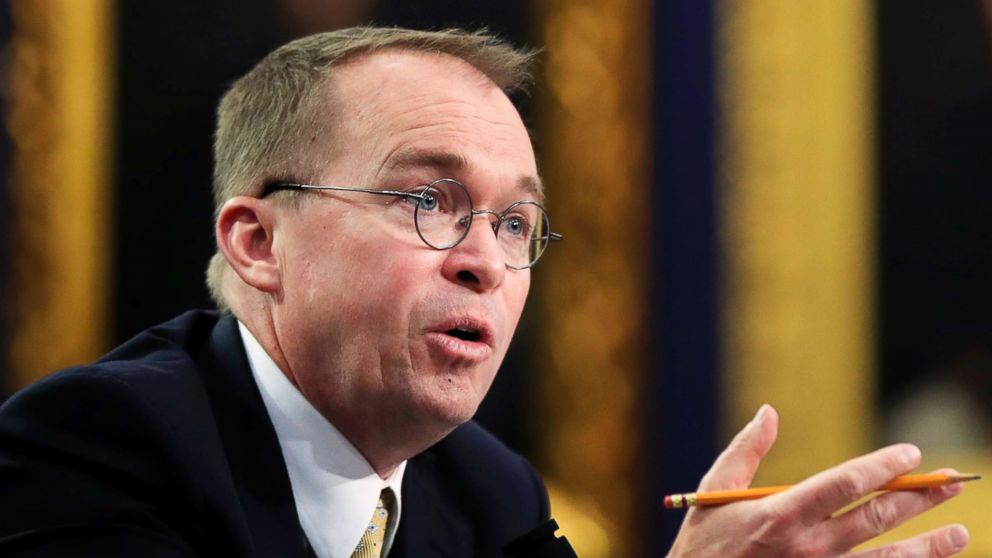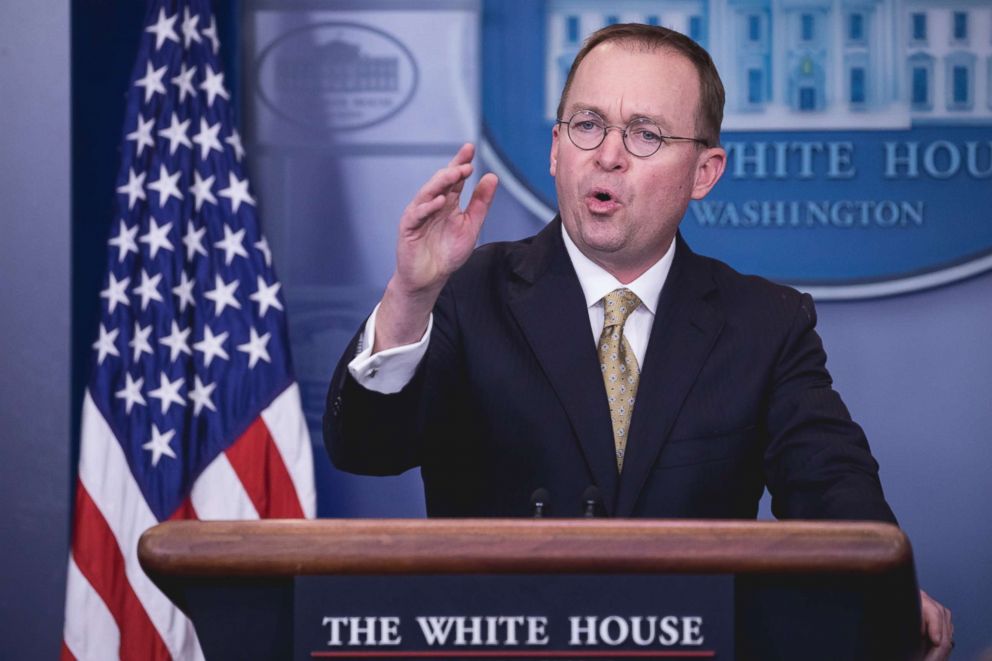White House sends $15.4 billion rescissions proposal to Congress
Congress reviewing $15.4 billion proposal to rescind "unobligated balances."

The White House sent a proposal to Congress Tuesday to recapture $15.4 billion in “unobligated balances,” setting up the next budget battle on Capitol Hill as Democrats decried the cuts, including $7 billion allocated for children’s health.
Following a briefing with House Republicans, Mick Mulvaney, the director of the Office of Budget and Management, told ABC News that the rescissions allow the administration to recoup money locked in inactive accounts dating as far back as 2011.
“The bottom line is it's $15.4 billion dollars. That's the bottom line,” Mulvaney said during a hallway interview at the Capitol. “If it passes it would be the largest rescissions savings in the history of the country. I'm very excited about the possibility of it passing.”
The proposal is requested under the Impoundment Control Act of 1974, allowing rescissions to pass with simple majorities in the House and Senate. Initial House and Senate action must be completed within 45 days, not counting adjournments or recesses longer than three days.

Among the “wasteful spending” identified by the administration: $4.3 billion from the Advanced Technology Vehicles Manufacturing Loan Program, which has not made a loan since 2011. The White House is also looking to recoup $252 million in excess funds remaining from the 2015 Ebola outbreak response, an epidemic the World Health Organization declared to be over in 2016.
“It cannot be used and is just sitting in an account,” House Majority Leader Kevin McCarthy, R-Calif., said of the proposed rescissions. “Why would you let it sit there and waste and not give it back to the American public?”
An OMB official said any rescinded funds would be transferred to the U.S. Treasury and would go toward reducing the national debt.
The proposal was met with immediate opposition from incredulous congressional Democrats.
“These Republican rescissions show the hypocrisy of a GOP Congress that insists on tight budgets for children and families while handing enormous, unpaid-for giveaways to corporations and the wealthiest,” House Minority Leader Nancy Pelosi, D-Calif., said in a statement.
The administration wants to cut $523 million from the Title 17 Innovative Technology Loan Guarantee Program, which had its authority to make new loan guarantees expire in 2011, and is targeting $800 million from the Center for Medicare and Medicaid Innovation, which it says is in excess of the funds needed in fiscal years FY 2018 or 2019.
The two rescissions from CHIP, the Children's Health Insurance Program, are $5.15 billion from an FY17 appropriation to reimburse states and $1.865 billion from the CHIP Contingency Fund.
A senior Democratic House Appropriations aide says that while Democrats have sometimes supported rescinding unobligated CHIP balances like these, they have always immediately reinvested that money in maternal and children’s health, Head Start, child care, biomedical research, or other educational/health services that help people. “This rescissions package would simply take this money off the table without doing anything to help anyone,” the aide noted.
"Cutting children’s health insurance without reinvesting in other vital health care programs will cause serious pain for American families," Rep. Nita Lowey, the top Democrat on the House Appropriations Committee, said. "Likewise, slashing investments in rural infrastructure, medical innovation, and community development robs the American people of opportunities for better jobs and better futures. Congress must reject this reckless proposal, which undoes years of careful bipartisan work."

Mulvaney contended Democrats are opposing the pitch “for reasons that make absolutely no sense.”
“Some of the things we're suggesting are actually savings that they voted for already in other bills,” he said. “So it's almost like if it's Donald Trump's idea it must be a bad idea. Chuck Schumer has voted for rescissions before. He's voted for these types of rescissions before. But all of a sudden, Donald Trump is president and a good piece of legislation becomes a bad piece of legislation.”
Mulvaney, a former House Republican from South Carolina, said additional rescissions targeting children’s health insurance, known as CHIP, are from a fund used to reimburse states – and the proposal doesn’t claw back any money authorized through the next decade.
“What HHS is telling us is they don't need nearly as much money as they have in that account now, so we can rescind it without affecting any program whatsoever,” Mulvaney said. “None of the CHIP programs that have just been reauthorized will be impacted in any way should this rescissions package pass.”




